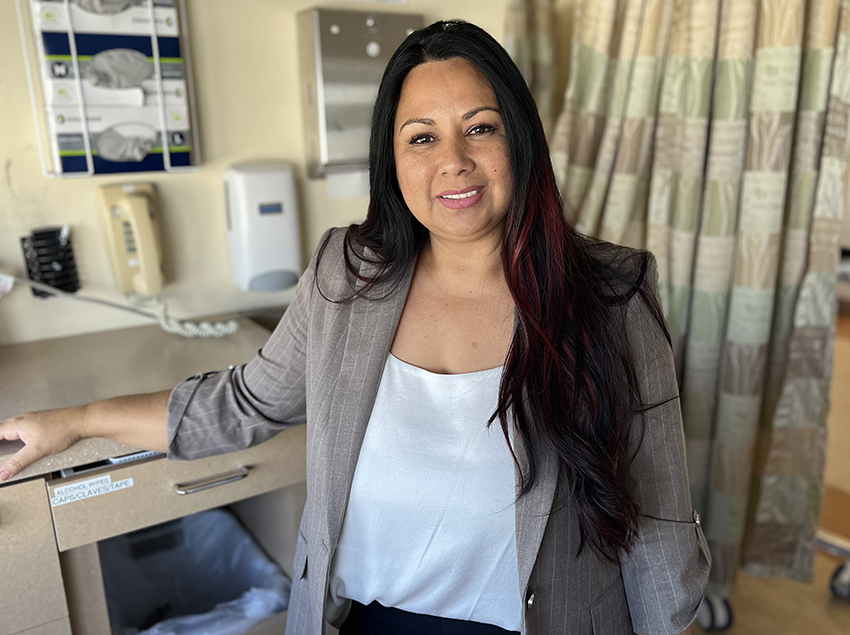CNO Roundtable 2024
Question 3: Workplace Culture
What strategies are most effective in reducing staff bullying and incivility?

Wendy Cortez / Kaiser Permanente Irvine Medical Center
Leaders must adopt a relentless intolerance for behavior that threatens their team’s psychological safety, including subtle but still dangerous behaviors that undermine a healthy work environment.
Anna Gonzales / Regal Medical Group
Clearly communicating expectations is paramount. I also aim to ensure that my behavior reflects our standards by setting clear boundaries, demonstrating respect and fairness, and promptly addressing allegations of bullying or discrimination.
Karen Grimley / UCLA Health
Stabilizing the work environment with a staffing plan is a critical step; when nurses can count on having the recommended number of staff, it relieves the stress of being under-resourced. Only then can nurses begin to trust and build relationships with their peers.
Leila Ibushi-Thompson / Adventist Health White Memorial
Implementing a just culture program fosters accountability, trust, mutual respect, and open communication, which empowers staff to speak up about mistreatment and address conflicts constructively.
Maria Kariuki / California Rehabilitation Institute
Addressing issues in real time is crucial, as are giving nursing leadership the right tools for handling difficult situations, holding staff accountable, and promoting a just culture.
Dalarie Manda / St. John’s Regional Medical Center
When confronting bullying behavior, leadership must hit it head on: Talk about it among staff, bring it out into the open, and hold teams accountable for inappropriate behavior.
 Theresa Murphy / USC Verdugo Hills Hospital
Theresa Murphy / USC Verdugo Hills Hospital
Our entities have implemented the Vanderbilt Coworker Observation Reporting System (CORS) for nurses, which promotes peer engagement rather than disciplinary action related to unprofessional behavior. The premise is that most professionals self-correct when made aware of their behavior by a peer.
Cindy Naveira / USC Care & Ambulatory Services
Workplace culture expert Shola Richards notes that our actions, our effort, and our attitude are always in our control. Leaders are empowered (and obligated) to change a hostile work milieu, and to demonstrate civility by valuing people’s time, skill, and contributions.
Jinhee Nguyen / Adventist Health Glendale
We all know how to handle blatant, obvious incidents. It’s the subtler, often unnoticed events that erode camaraderie and culture. Education and awareness are essential, not just during orientation and mandatory training, but at all levels of the organization.
Darlene Scafiddi / Pomona Valley Hospital Medical Center
Reducing bullying and enhancing civility comes from within the ranks. Shared governance allows nurses to take the lead in creating a safe culture. We also provide opportunities to share feedback anonymously, and train preceptors to recognize and address bullying.
Michelle Sterling / Rancho Los Amigos
We foster a just culture through open communication and nonpunitive reporting, and by training staff to identify and address issues. Transparency is a cornerstone of creating a supportive environment where unprofessional behaviors are addressed.
 Armenui Telliyan / Ambulatory Care Network, LAC DHS
Armenui Telliyan / Ambulatory Care Network, LAC DHS
We often hear that “nurses eat our young,” but we are not that delicious. I call it the bitter mother-in-law syndrome: In some cultures, a new bride is mistreated by the in-laws; when she’s older, she mistreats her daughter-in-law the same way. Having open, transparent leadership that stops unacceptable behavior on the spot and understands team members’ diversity is an effective strategy for breaking this cycle.
Vicki White / Henry Mayo
Establishing unequivocal standards for professional behavior is essential. In a field dedicated to caring, there must be zero tolerance for bullying. Accountability is paramount, and both staff nurses and leaders must hold themselves and others to the highest standards.
Colleen Wilcoxen / USC Arcadia Hospital
We’ve implemented the Vanderbilt CORS program, which is based on self-correction. When someone submits a complaint about a coworker, peer messengers give the individual a nonpunitive, off-the-record opportunity to correct the behavior. This has already made an impact.
Cheryl Witt Wheelock / Northridge Hospital Medical Center
We maintain a strict zero-tolerance policy for workplace violence, and our leaders stand firm against bullying, addressing it promptly before it escalates. We also have ongoing initiatives to educate our leadership team and nursing and support staff.
In this Article: Leadership and Management






